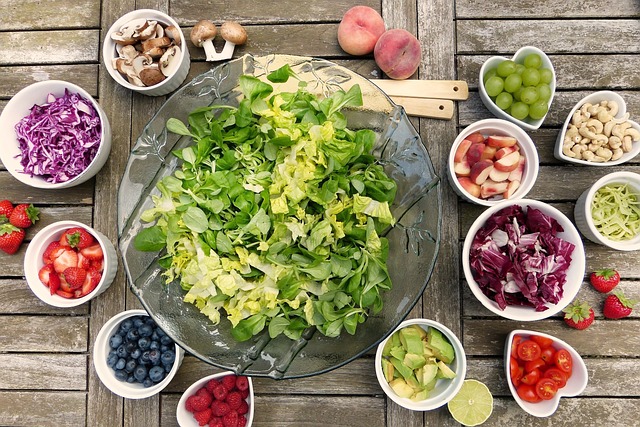Probiotics are the latest buzzword in the health and wellness industry. These live bacteria and yeasts have gained popularity for their potential to improve gut health and promote overall well-being. But what exactly are probiotics, and why are they so important for cultivating a healthy microbiome?
The Microbiome: Our Inner Ecosystem
The human body is home to trillions of microorganisms, collectively known as the microbiome. These include bacteria, fungi, viruses, and other microbes that live in and on our bodies. The microbiome plays a crucial role in maintaining various bodily functions and promoting good health.
One of the key functions of the microbiome is aiding in digestion and nutrient absorption. Certain microbes in the gut break down food particles that our bodies cannot digest independently, helping us derive additional nutrition from our diets. Additionally, the microbiome assists in synthesizing essential vitamins and minerals.
The Role of Probiotics
Probiotics are beneficial bacteria that, when consumed in adequate amounts, confer health benefits on the host. These friendly bacteria help maintain the balance of the microbiome, preventing the overgrowth of harmful bacteria and fungi that can lead to various health issues.
While the human body naturally harbors a diverse range of bacteria, certain factors can disrupt this balance. Antibiotic use, a poor diet, stress, and illnesses can all contribute to an imbalance in the microbiome, leaving us vulnerable to infections and digestive disorders. This is where probiotics come into play.
Benefits of Probiotics
1. Improved Digestive Health: Probiotics are commonly associated with promoting a healthy gut. They help alleviate symptoms of gastrointestinal issues such as bloating, constipation, and diarrhea. Certain strains of probiotics, such as Lactobacillus and Bifidobacterium, have been found to be particularly effective in improving digestive health.
2. Enhanced Immune Function: The gut houses a significant portion of our immune system. By maintaining a balanced microbiome, probiotics support immune function, helping to prevent and combat infections. Regular consumption of probiotics has been linked to a reduced risk of respiratory and gastrointestinal infections.
3. Mental Well-being: Emerging research suggests a strong connection between the gut and the brain, known as the gut-brain axis. Probiotics can influence the production and function of neurotransmitters, which play a crucial role in mood regulation. Studies have shown that probiotic supplementation may reduce symptoms of anxiety and depression.
4. Improved Skin Health: The health of our skin is closely linked to the gut. Imbalances in the microbiome can contribute to skin conditions such as acne, eczema, and rosacea. Probiotics help restore balance, reducing inflammation and improving skin health.
5. Cardiovascular Health: Probiotics have shown promise in improving heart health by positively affecting cholesterol levels, blood pressure, and inflammation markers. Certain strains of probiotics have been linked to a reduction in LDL cholesterol and overall cardiovascular risk.
Probiotic Strategies for Vibrant Living
1. Choose the Right Strains: Different strains of probiotics have distinct benefits. Look for supplements or foods that contain strains known to support your specific health goals. Lactobacillus acidophilus and Bifidobacterium bifidum are commonly recommended for overall gut health.
2. Eat Fermented Foods: Incorporating fermented foods into your diet is an excellent way to introduce natural probiotics. Yogurt, kefir, sauerkraut, kimchi, and kombucha are all examples of fermented foods rich in beneficial bacteria.
3. Consider Probiotic Supplements: When natural food sources are not sufficient, probiotic supplements can be a convenient option. Look for supplements with a diverse range of strains and adequate colony-forming units (CFUs) to ensure efficacy.
4. Prioritize Prebiotics: Prebiotics are non-digestible fibers that act as food for probiotics. They help probiotics thrive and multiply in the gut. Include prebiotic-rich foods like onions, garlic, bananas, and oats in your diet.
5. Practice Good Antibiotic Use: Antibiotics can disrupt the balance of the microbiome. If prescribed antibiotics, consider taking a probiotic supplement or consuming probiotic-rich foods to support the restoration of the microbiome.
Final Thoughts
Cultivating a healthy microbiome is essential for overall well-being, and probiotics play a crucial role in achieving this. By incorporating probiotic strategies into your lifestyle, such as consuming fermented foods and considering probiotic supplements, you can support a balanced microbiome, improve digestion, boost immunity, and promote vibrant living.







